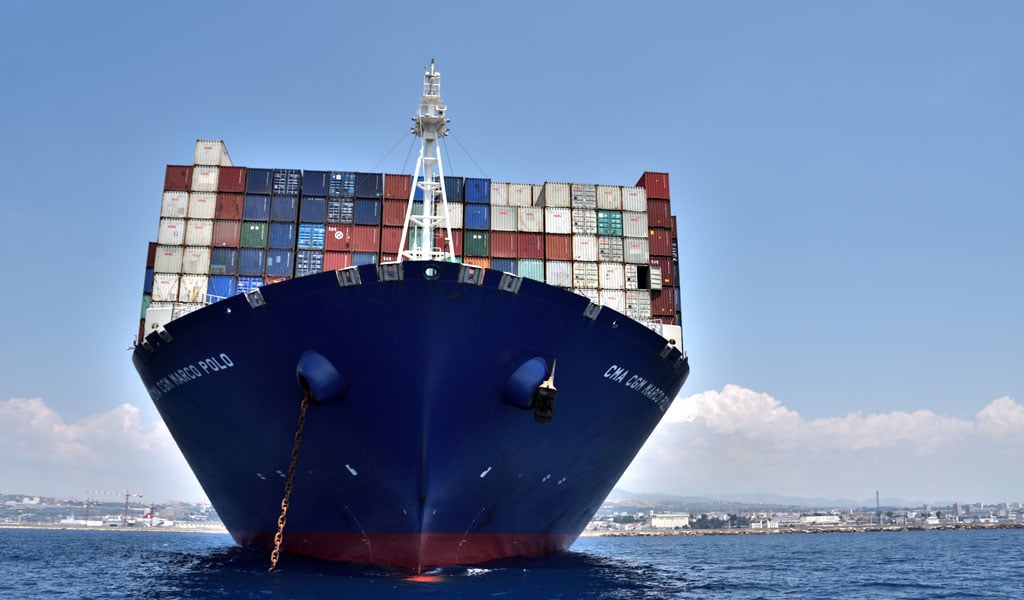August 10, 2018
Versions in Español, Français, Português
[caption id="attachment_24229" align="alignnone" width="1024"] A container ship entering the Port of Marseille, France: The UK is among the European Union's largest trading partners, accounting for about 13 percent of its trade in goods and services (photo: Gerard Bottino/Newscom)[/caption]
A container ship entering the Port of Marseille, France: The UK is among the European Union's largest trading partners, accounting for about 13 percent of its trade in goods and services (photo: Gerard Bottino/Newscom)[/caption]
When the United Kingdom leaves the European Union, higher barriers to trade, capital flows, and labor mobility will affect output and jobs not only in the UK but also in the remaining 27 EU member states. Since Brexit means both parties will withdraw from a frictionless economic relationship, there will be costs on both sides, as our new study suggests.
Bonds between the EU and the UK run deep: The UK is among the EU 27's largest trading partners, accounting for about 13 percent of its trade in goods and services. Beside bilateral trade links, there are substantial supply chain trade links between the EU-27 and the UK that involve several countries.

Financial linkages are also strong, with gross bilateral capital flows totaling around 52 percent of EU-27 GDP in 2016.
Migration flows have also strengthened over time, and are very large for some countries, such as Ireland.
Reversing integration will hurt long-term output and jobs in the EU
A constructed index that captures all these channels of integration indicates growing EU-UK bilateral integration over the past 30 years.
The reversal of that integration in following Brexit will hurt income and employment in the EU.
If the UK and the EU settle on a standard free trade agreement (FTA) where tariffs on goods trade are low but with higher non-tariff barriers, we estimate that EU-27 real output will be lower by 0.8 percent, and employment by 0.3 percent, in the long run than in a no-Brexit scenario once all transmission channels are accounted for.
Since Brexit means both parties will withdraw from a frictionless economic relationship, there will be costs on both sides.
If the parties default to WTO rules, the decline in real output relative to no-Brexit would be even larger, at 1.5 percent in the long run, and employment would fall by 0.7 percent. Under a relatively benign “Norway” scenario (EEA), however, where access to the single market is preserved while membership in the customs union is lost, the decline in output and employment for the EU-27 appears negligible.
Brexit-related hit: country-by-country estimates of the trade impact
The more any country trades with the UK, the larger the Brexit-related hit to its output will be. To shed light on this, we used a country-specific framework to study the direct and indirect trade effects from higher tariffs and non-tariff barriers for both goods and services trade. The simulated effects are relatively smaller compared to the estimates presented above as only trade links are accounted for in the model framework.
We find that EU-27 real output would be lower by 0.2 percent in the long run under the FTA scenario than under a no-Brexit scenario, with the hit to Ireland’s income the largest in the EU‑27 (about 2.5 percent compared to the no-Brexit scenario), followed by the Netherlands, Denmark, Belgium, and Czech Republic.
These estimated impacts relative to no Brexit increase in the event of a default to WTO rules, reaching an output loss of 0.5 percent for the EU‑27, and an output loss of 4 percent for Ireland given the substantial increase in both tariff and non-tariff barriers.
Our study does not look at the effect of uncertainty about the future relationship between the EU-27 and the UK, or the transition to the new relationship. It focuses entirely on the long-term impact, when all parties have fully adjusted to the new relationship. The ultimate consequences will take years to materialize and will depend on the eventual deal between the EU 27 and the UK.




